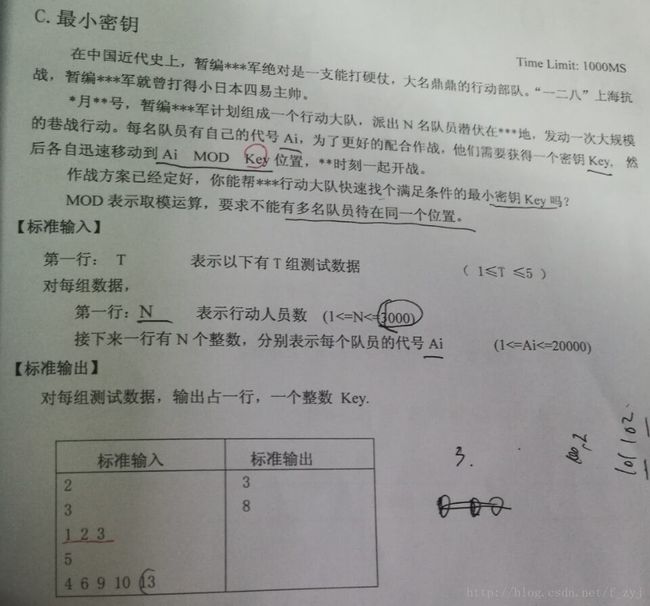河南第十届ACM省赛-C-最小密钥
ACM模版
描述
题解
比赛时,这个问题不用多想,直接暴力枚举即可,但是赛后想着用非暴力解试试看,挺好的一道题。
既然要求余数都不一样,那么我们不如反过来想,如果一样时满足什么,这样找不满足这个条件的不就好了?
假设 a 和 b 对 x 同余,那么一定存在 (a−b) ,所以这就意味着,我们要找的数一定不能是任意 a−b 的差值的因子,所以我们需要暴力求解所有数对的差值,而这些差值均不能是 x 的倍数,这样,终究是离不开枚举,但是相对暴力枚举的更加高效一些吧。
对于一小部分数据,可能直接暴力的枚举比预处理后再枚举会更快一些,但是对于大数据的时候,还是预处理一下比较好,那么,对于这道题,数据不大,我们大可以直接暴力枚举,何乐而不为呢?
代码
#include 